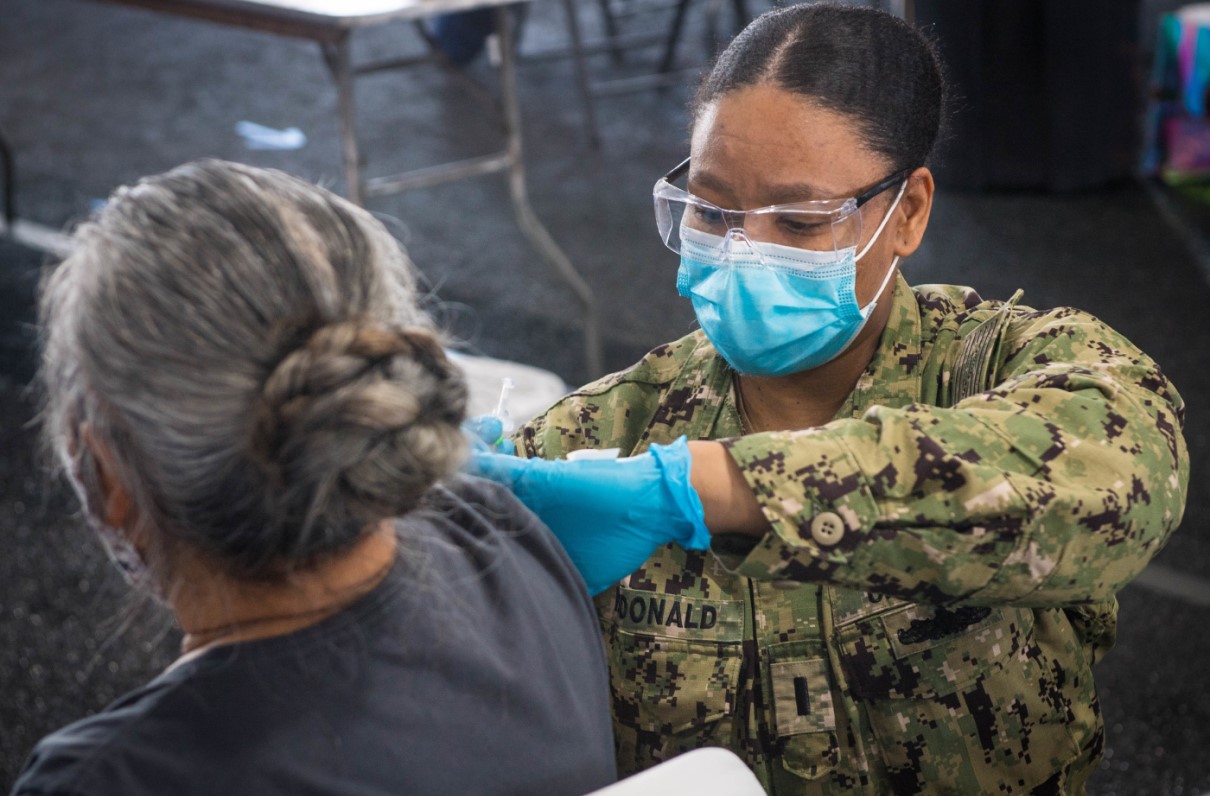Provisions in the FY 2023 National Defense Authorization Act (NDAA) will halt proposed military medical billet cuts for five years and require a series of reports before DoD makes any similar plans to cut personnel at its military treatment facilities (MTFs).
This marks the fourth consecutive MOAA “win” on this issue – a streak that wouldn’t be possible without tens of thousands of MOAA members mobilizing to support this critical association priority.
Original DoD plans to cut about 18,000 medical billets, put in place before the COVID-19 pandemic, have been delayed and reevaluated multiple times since first released in March 2019, as part of the FY 2020 defense budget. What began as a serious threat to beneficiaries’ access to patient care took on even greater significance as Gen. Mark Milley, USA, chairman of the Joint Chiefs of Staff, told lawmakers last year that proposed reductions could leave the military lacking in trained medical personnel “in the fielded force to handle combat conditions.”
[RELATED: Debt Ceiling Drama Could Threaten Your Service-Earned Benefits]
Congress responded with provisions in the FY23 NDAA requiring:
- Congressional notification before modifying the scope of services provided at MTFs.
- Extensive reporting requirements on medical workforce requirements, including risk analysis and mitigation plans
- A five-year halt to medical billet cuts.
- A one-year suspension on MTF restructuring.
- Reporting on the composition of medical personnel of each military department, including vacancies and a validation against military requirements.
The NDAA also extends the timeframe for a Government Accountability Office report mandated by the previous year’s NDAA to evaluate DoD’s plans to reduce military medical manning.
More Threats on the Horizon
Unfortunately, planned billet cuts are far from the only measure threatening to weaken your service-earned health care benefits. MOAA already has engaged with lawmakers on:
- Multiple proposals included in a recent Congressional Budget Office report offering options to reduce the federal deficit, including raising medical costs for some retirees using TRICARE For Life by thousands of dollars a year.
- Continued uncertainty surrounding the shrinking TRICARE retail pharmacy network.
- Plans to consolidate specialty care in large military hospitals and medical “centers of excellence,” which could create challenges for beneficiaries required to travel for their care.
[TRICARE PHARMACY NETWORK CUTS: Write Your Congressman | Share Your Story With MOAA]
Communications from MOAA members to lawmakers were instrumental to halting proposed medical billet cuts. We hope you will continue to engage with your lawmakers as we advance our legislative priorities for the 118th Congress, including the preservation of your earned health care benefits.
More Members Mean More Influence Over Our Health Care
Get involved and make sure your interests are addressed. Because the larger our voice is, the greater our impact will be.

